Daily Archives: May 25, 2016
Mid Atlantic: National Ocean Policy threatens new regulatory burdens
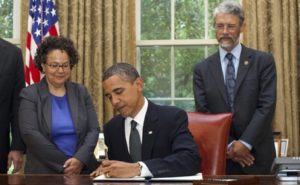 Since its creation by Executive Order in 2010, the Obama administration has hailed its National Ocean Policy (NOP) as a non-regulatory, stakeholder-driven initiative that will lead to reduced burdens and less uncertainty for ocean user groups. In reality, it’s nothing of the sort. This was highlighted recently during a hearing held by the U.S. House Natural Resources’ Water, Power and Oceans Subcommittee on the implications of the NOP, where House Natural Resources Committee Chairman Rob Bishop summed up many of the concerns of stakeholders when he noted that “it’s creating more uncertainty, and it certainly is not helping the industry and it’s not helping the environment.” You know what? He’s right. The Long Island Commercial Fishing Association (LICFA) has been closely monitoring the development and implementation of the NOP since its establishment six years ago. We’ve had no other choice, as we represent stakeholders in New York’s $1.4 billion boat-to-table seafood industry, with Long Island in particular landing 99 percent of the state’s wild-caught seafood. Read the rest here 16:42
Since its creation by Executive Order in 2010, the Obama administration has hailed its National Ocean Policy (NOP) as a non-regulatory, stakeholder-driven initiative that will lead to reduced burdens and less uncertainty for ocean user groups. In reality, it’s nothing of the sort. This was highlighted recently during a hearing held by the U.S. House Natural Resources’ Water, Power and Oceans Subcommittee on the implications of the NOP, where House Natural Resources Committee Chairman Rob Bishop summed up many of the concerns of stakeholders when he noted that “it’s creating more uncertainty, and it certainly is not helping the industry and it’s not helping the environment.” You know what? He’s right. The Long Island Commercial Fishing Association (LICFA) has been closely monitoring the development and implementation of the NOP since its establishment six years ago. We’ve had no other choice, as we represent stakeholders in New York’s $1.4 billion boat-to-table seafood industry, with Long Island in particular landing 99 percent of the state’s wild-caught seafood. Read the rest here 16:42
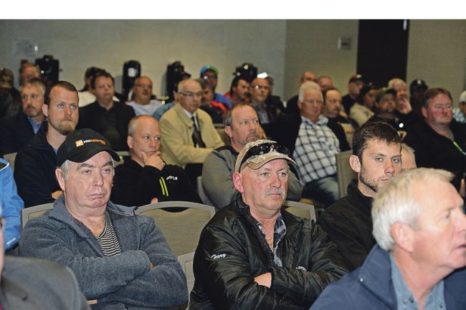
Abandon LIFO: Fishermen ask for new deal on shrimp
Glen Winslow and the six-member crew of the Roberts Sisters II should have been fishing for crab Tuesday. Instead, the boat was tied up in St. John’s harbor. Winslow joined more than 150 other people, mostly fishermen, in trying to convince a federal review panel to recommend the federal government abandon the last in, first out (LIFO) approach on allocating northern shrimp quotas. The majority of those in the room asked the minister not continue to force smaller, inshore enterprises to take the greater share of quota cuts on the declining stock off Newfoundland and Labrador, when compared to larger, “offshore” enterprises. “We’ll be out of the (shrimp) fishery this year,”,, Read the story here 15:01
Athearn Marine Agency Boat of the Week: 42′ Bruno & Stillman lobster boat, 8-V-71 Detroit Diesel
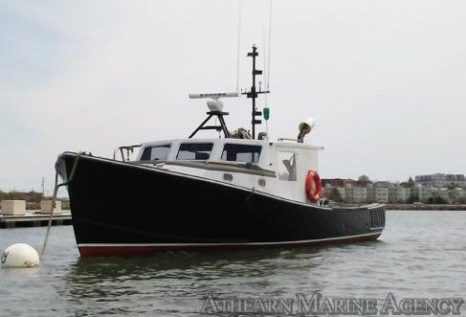 To see specifications, information and 15 photos Click here. To see all the boats in this series, Click here 12:28
To see specifications, information and 15 photos Click here. To see all the boats in this series, Click here 12:28
Rhode Island tagged Bluefin Tuna gains 593 pounds, travels 3,865 miles before recapture in the Mediterranean
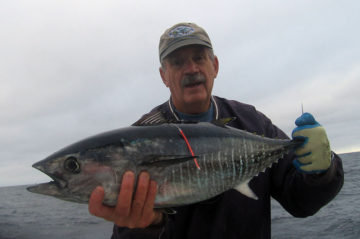 The National Oceanographic and Atmospheric Administration’s (NOAA) Southeast Fisheries Science Center in Miami, Florida has been tagging fish for years with the help of fishermen and scientists throughout the world. A 9-pound bluefin tuna caught, tagged and released by Capt. Al Anderson of Narragansett in 2004 at the Mudhole (about 17 miles east/southeast of Pt. Judith) was recaptured recently in the Mediterranean Sea off the coast of Sardinia, weighing in at 602 pounds. Anderson, who has tagged more bluefin tuna than anyone else in the world, said, “This was the 13th bluefin tuna I caught, tagged and released. The tagging of fish caught by fishermen helps scientists determine their migratory pattern, define their populations and if possible, estimate their growth rates, population sizes and mortality rate.” Tagging programs also help scientists determine the need for conservation programs, as well as how to plan for conservation programs. “During the 11-year timeframe from point of tagging to point of recapture, this bluefin tuna traveled 3,865 miles,” said Anderson. Read the rest here 11:54
The National Oceanographic and Atmospheric Administration’s (NOAA) Southeast Fisheries Science Center in Miami, Florida has been tagging fish for years with the help of fishermen and scientists throughout the world. A 9-pound bluefin tuna caught, tagged and released by Capt. Al Anderson of Narragansett in 2004 at the Mudhole (about 17 miles east/southeast of Pt. Judith) was recaptured recently in the Mediterranean Sea off the coast of Sardinia, weighing in at 602 pounds. Anderson, who has tagged more bluefin tuna than anyone else in the world, said, “This was the 13th bluefin tuna I caught, tagged and released. The tagging of fish caught by fishermen helps scientists determine their migratory pattern, define their populations and if possible, estimate their growth rates, population sizes and mortality rate.” Tagging programs also help scientists determine the need for conservation programs, as well as how to plan for conservation programs. “During the 11-year timeframe from point of tagging to point of recapture, this bluefin tuna traveled 3,865 miles,” said Anderson. Read the rest here 11:54
Freedom, danger is in R.I. fisherman’s wheelhouse – Mark Patinkin
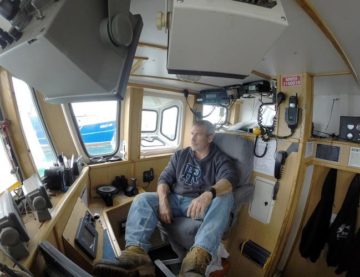 I got to wondering what it’s like these days for commercial fishermen so I drove to the Point Judith docks, walked up to the trawler Elizabeth & Katherine and asked the captain, Steven Arnold, if I could come aboard. It was at 11 a.m. and he’d already put in a long shift with plenty more to go — he’d steamed out for squid at 4:30 a.m. He was back because his net tore on rocks while dragging the bottom of Rhode Island Sound so the crew had come in to repair it. I climbed over the rail and followed Arnold, 52, to the wheelhouse. He wore jeans, boots, a sweatshirt, hadn’t shaved for a few days and seemed to belong there in the captain’s seat. Squid is his biggest species but that morning, they weren’t there. He mostly had scup when the net came up torn. You have good days and bad, Arnold said, but he still loves fishing for the same reasons that first drew him to it after a childhood in South County and two years at New England Tech. Read the story here 11:01
I got to wondering what it’s like these days for commercial fishermen so I drove to the Point Judith docks, walked up to the trawler Elizabeth & Katherine and asked the captain, Steven Arnold, if I could come aboard. It was at 11 a.m. and he’d already put in a long shift with plenty more to go — he’d steamed out for squid at 4:30 a.m. He was back because his net tore on rocks while dragging the bottom of Rhode Island Sound so the crew had come in to repair it. I climbed over the rail and followed Arnold, 52, to the wheelhouse. He wore jeans, boots, a sweatshirt, hadn’t shaved for a few days and seemed to belong there in the captain’s seat. Squid is his biggest species but that morning, they weren’t there. He mostly had scup when the net came up torn. You have good days and bad, Arnold said, but he still loves fishing for the same reasons that first drew him to it after a childhood in South County and two years at New England Tech. Read the story here 11:01
In Maine’s last open lobster zone, a feud over limiting newcomers
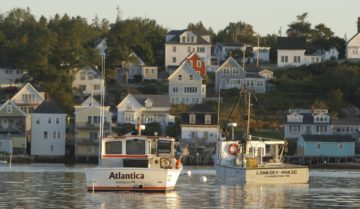 In most of Maine, adults who want to make their living trapping lobster must wait until a licensed lobsterman dies or forgets to file a license renewal. There is only one place in the state, in the waters of eastern Penobscot Bay off Stonington, Vinalhaven and Isle au Haut, where a resident who completes the necessary training and safety classes can get a license to lobster without waiting for at least a decade. But the lobstermen who oversee Maine’s last open lobster territory are now fighting over whether to cap the number of lobstermen who can fish those waters, effectively closing the last open door to the state’s largest commercial fishery. The debate is pitting islanders who worry that a cap would eliminate an incentive for adult children to return home against mainland fishermen who want to protect this lucrative industry from outside exploitation. After years of debate, the local lobster council has tried to put the issue to a vote twice before, but the meetings have fallen through, with members missing meetings or walking out moments before a closure vote could be held. Read the story here 09:33
In most of Maine, adults who want to make their living trapping lobster must wait until a licensed lobsterman dies or forgets to file a license renewal. There is only one place in the state, in the waters of eastern Penobscot Bay off Stonington, Vinalhaven and Isle au Haut, where a resident who completes the necessary training and safety classes can get a license to lobster without waiting for at least a decade. But the lobstermen who oversee Maine’s last open lobster territory are now fighting over whether to cap the number of lobstermen who can fish those waters, effectively closing the last open door to the state’s largest commercial fishery. The debate is pitting islanders who worry that a cap would eliminate an incentive for adult children to return home against mainland fishermen who want to protect this lucrative industry from outside exploitation. After years of debate, the local lobster council has tried to put the issue to a vote twice before, but the meetings have fallen through, with members missing meetings or walking out moments before a closure vote could be held. Read the story here 09:33
“Joint Law Enforcement Agreement” – Constrain Feds and Encourage Science for Fishermen
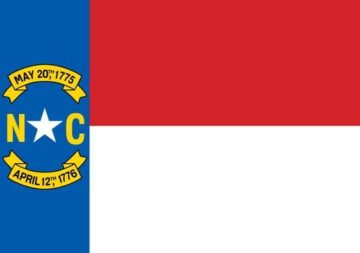 Progressive protection of the fisheries is needed but mostly against polluters and out-of-state special interests controlling NC legislators. Federal agencies are necessary to stop the destruction of fisheries by foreign and out-of-state special interests that defy the people’s will in NC. Federalism is not inherently bad and is needed for doing things (together, as a nation) that concern issues that cross State borders, like pollution and some fish stocks fall into that category, as well. Having said that, there are large, distinctly NC fisheries, that should not fall into Federal Management, like crabbing and any commercial fishing within the Sounds, inside the Barrier Islands, unique to NC. Read the rest here 08:40
Progressive protection of the fisheries is needed but mostly against polluters and out-of-state special interests controlling NC legislators. Federal agencies are necessary to stop the destruction of fisheries by foreign and out-of-state special interests that defy the people’s will in NC. Federalism is not inherently bad and is needed for doing things (together, as a nation) that concern issues that cross State borders, like pollution and some fish stocks fall into that category, as well. Having said that, there are large, distinctly NC fisheries, that should not fall into Federal Management, like crabbing and any commercial fishing within the Sounds, inside the Barrier Islands, unique to NC. Read the rest here 08:40
How safe is the fishing industry in South Jersey? Training and tech improve safety
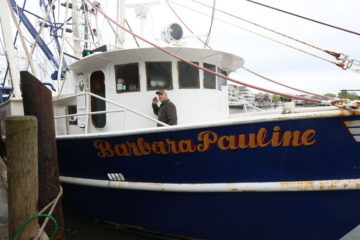 The crew of the Barbara-Pauline offloaded 17,000 pounds of scallops, stored like jewelry in soft cloth bags. And for the Port of Cape May, they might as well be white gold. New Jersey’s fisheries were ranked 11th in total value nationwide at $152 million in 2014. The Port of Cape May, with its valuable scallop fishery, is responsible for much of that. The Barbara Pauline made its quota in eight days at sea, earning each crew member as much as $15,000. But it’s not easy money. Commercial fishing is one of America’s most dangerous jobs. Statistically, fishermen are far more likely to die on the job than those in virtually any other profession. In the decade of the 2000s, an average of 17 fishermen died at sea each year from sinking, capsizing, falls overboard or traumatic injuries sustained on pitching decks surrounded by heavy moving equipment. Read the story here 08:00
The crew of the Barbara-Pauline offloaded 17,000 pounds of scallops, stored like jewelry in soft cloth bags. And for the Port of Cape May, they might as well be white gold. New Jersey’s fisheries were ranked 11th in total value nationwide at $152 million in 2014. The Port of Cape May, with its valuable scallop fishery, is responsible for much of that. The Barbara Pauline made its quota in eight days at sea, earning each crew member as much as $15,000. But it’s not easy money. Commercial fishing is one of America’s most dangerous jobs. Statistically, fishermen are far more likely to die on the job than those in virtually any other profession. In the decade of the 2000s, an average of 17 fishermen died at sea each year from sinking, capsizing, falls overboard or traumatic injuries sustained on pitching decks surrounded by heavy moving equipment. Read the story here 08:00






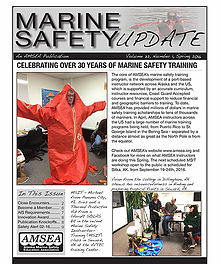
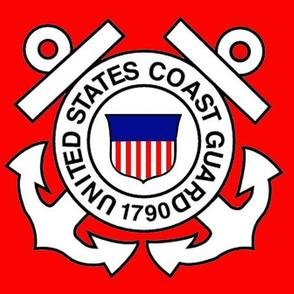




























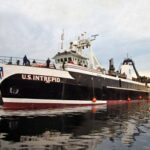


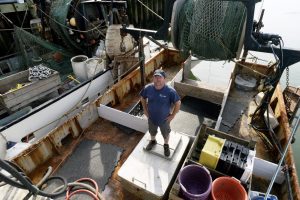
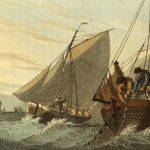
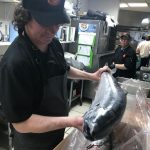
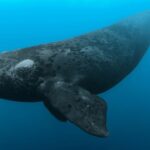

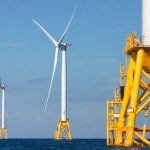



Northeast Regional Planning Body (RPB) releases draft Northeast Regional Ocean Plan
Share this post